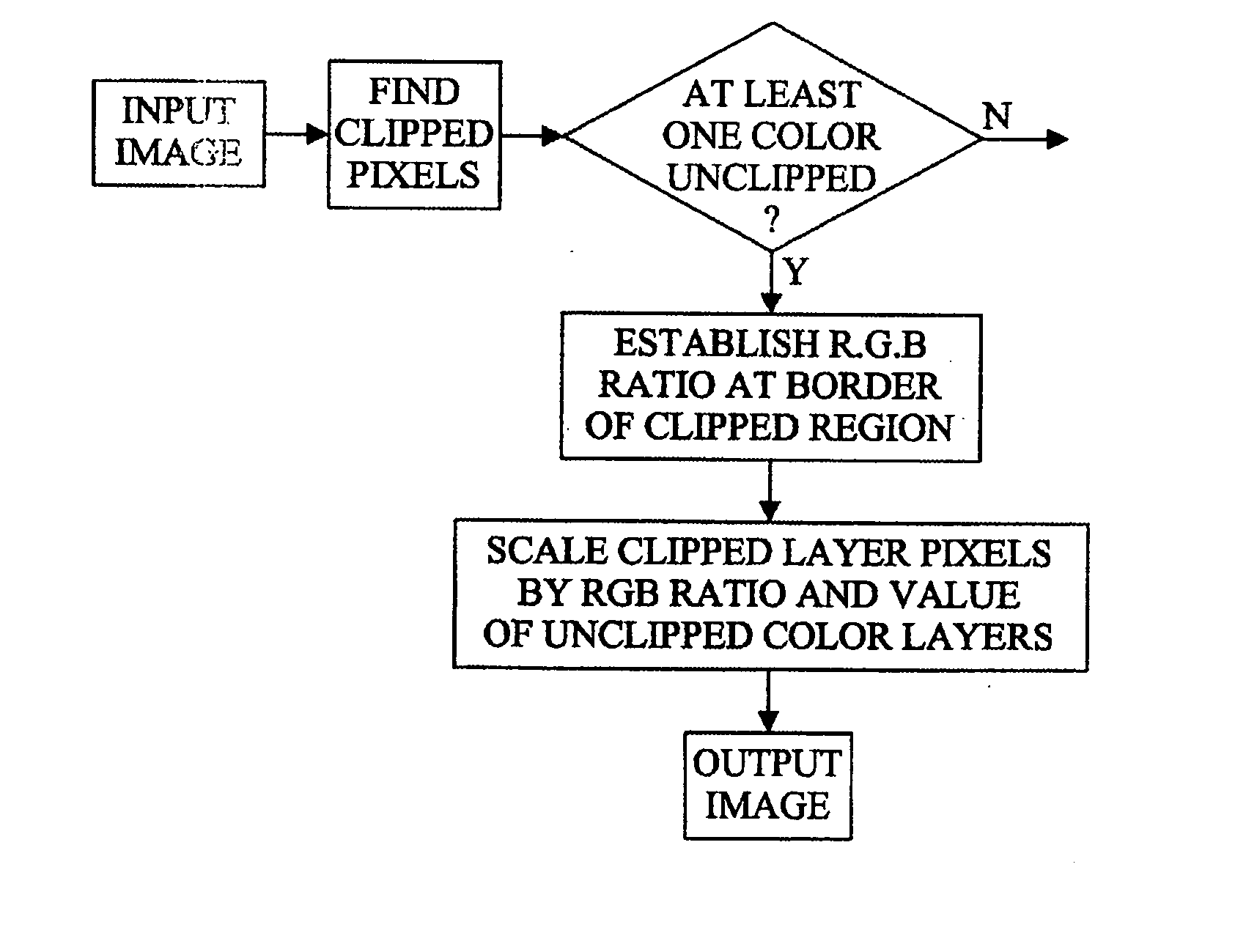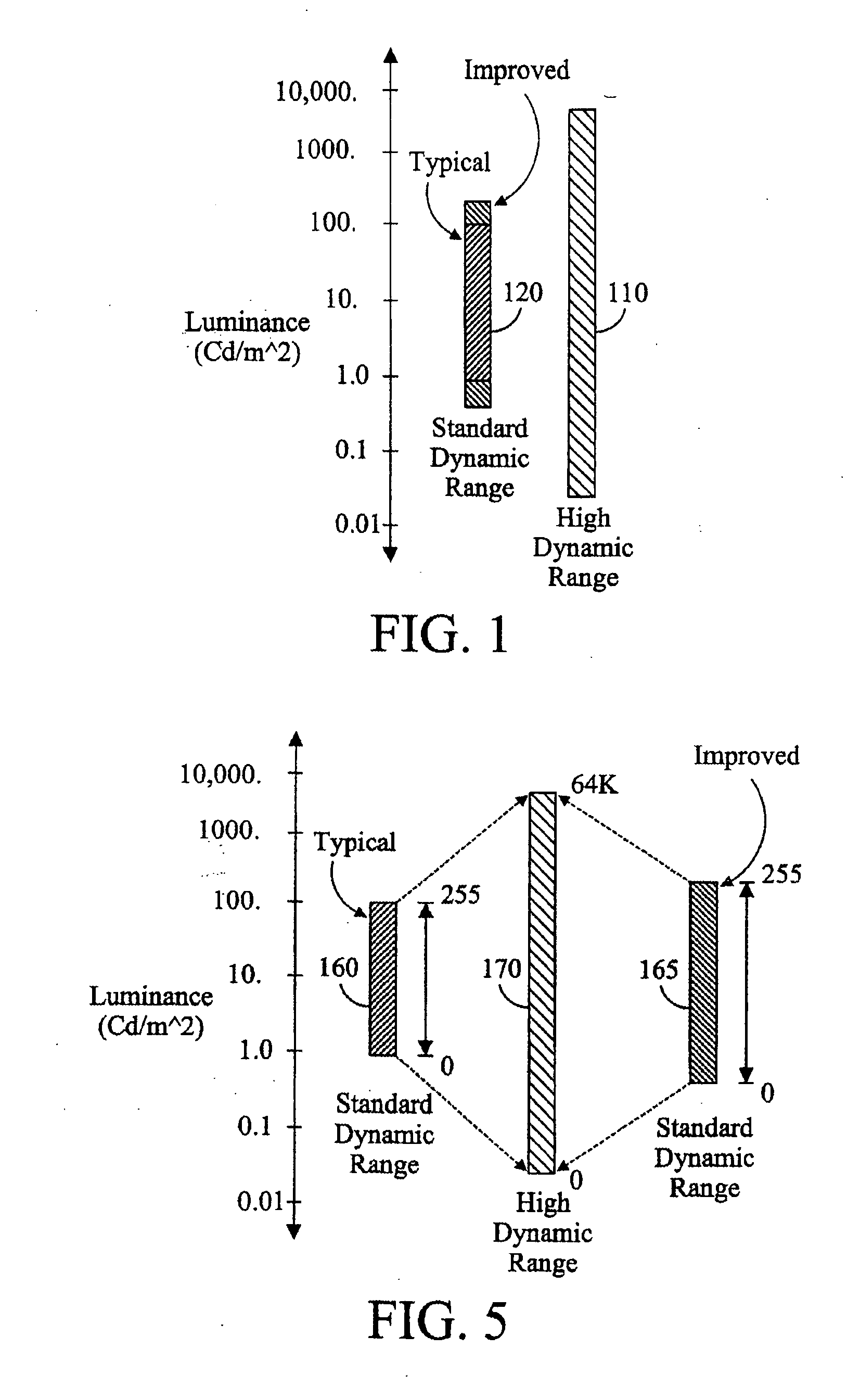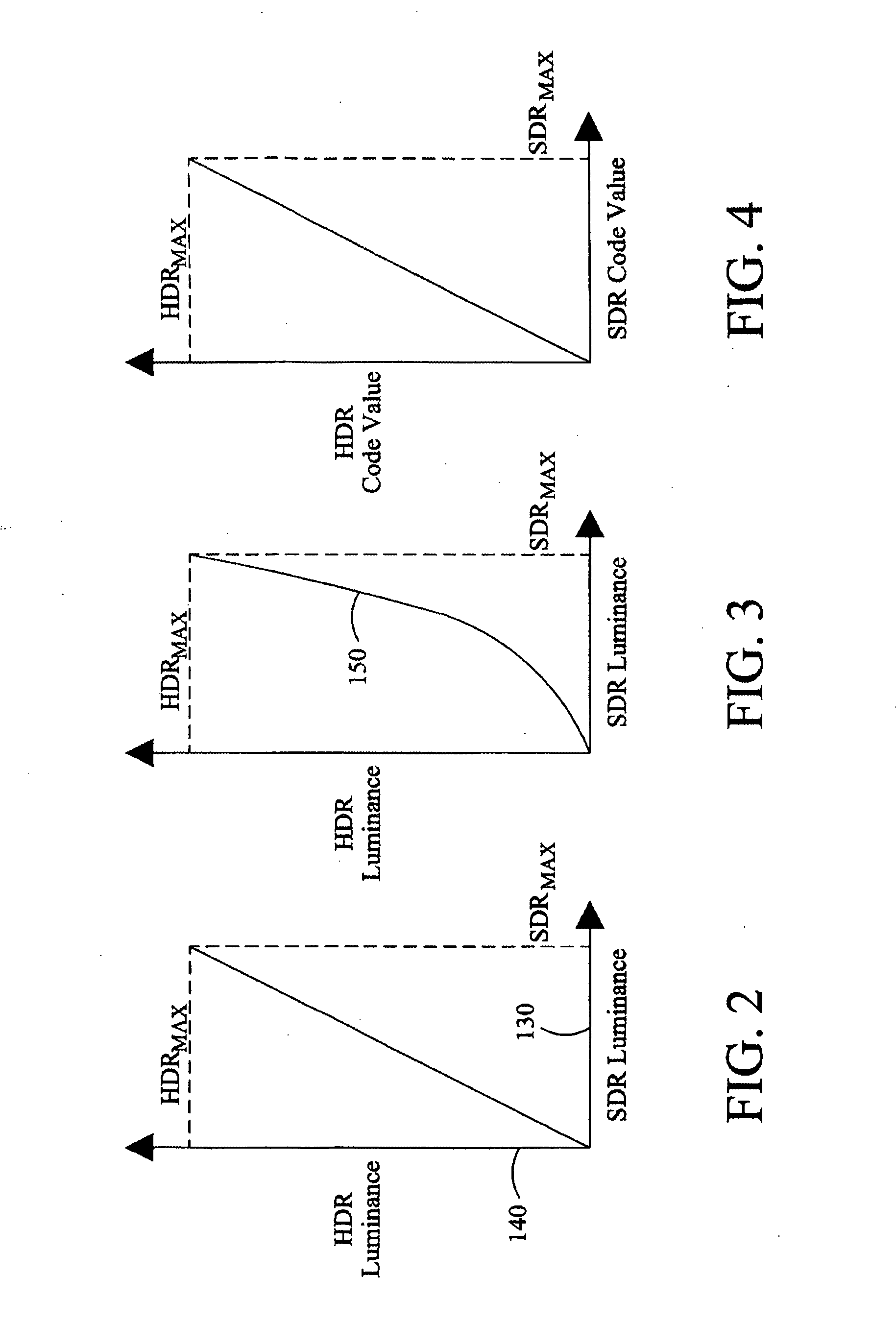High dynamic range images from low dynamic range images
a high dynamic range and image technology, applied in image enhancement, image analysis, instruments, etc., can solve the problems of digital images not being traditionally displayed without conversion to the lower dynamic range, more extreme range changes, and affecting the quality of images
- Summary
- Abstract
- Description
- Claims
- Application Information
AI Technical Summary
Problems solved by technology
Method used
Image
Examples
Embodiment Construction
[0031] Newly developed displays have been made which have substantially higher dynamic range than the traditional state of the art displays. The general difference in dynamic ranges for the newly developed displays 110 and the traditional displays 120 is shown in FIG. 1 for a log luminance scale. Some current state of the art standard dynamic range displays may have a range of 500 cd / mˆ2 to 0.7 cd / mˆ2. The newly developed “high dynamic range” displays may have a range from 3000 cd / mˆ2 to 0.05 cd / mˆ2, or even lower. In existing display technologies the image data is displayed on the display with its existing dynamic range.
[0032] The present inventors came to the realization that the image being presented on the display could be subjectively improved if the dynamic range of the image data is effectively increased. Since most images are already represented in a LDR (low dynamic range) format, a technique is desirable to convert the image from LDR up to HDR (high dynamic range).
[0033]...
PUM
 Login to View More
Login to View More Abstract
Description
Claims
Application Information
 Login to View More
Login to View More - R&D
- Intellectual Property
- Life Sciences
- Materials
- Tech Scout
- Unparalleled Data Quality
- Higher Quality Content
- 60% Fewer Hallucinations
Browse by: Latest US Patents, China's latest patents, Technical Efficacy Thesaurus, Application Domain, Technology Topic, Popular Technical Reports.
© 2025 PatSnap. All rights reserved.Legal|Privacy policy|Modern Slavery Act Transparency Statement|Sitemap|About US| Contact US: help@patsnap.com



